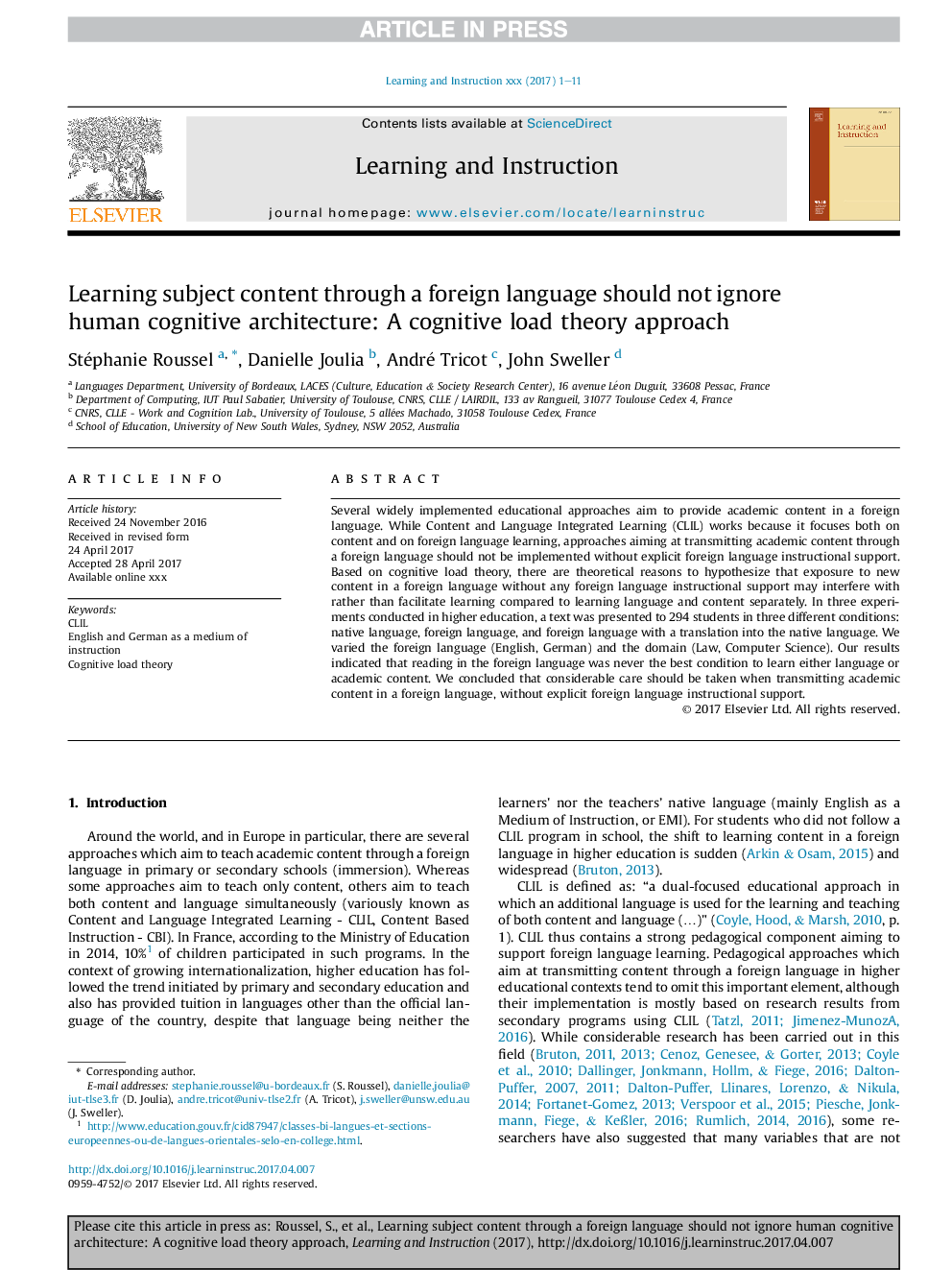| کد مقاله | کد نشریه | سال انتشار | مقاله انگلیسی | نسخه تمام متن |
|---|---|---|---|---|
| 4940202 | 1436409 | 2017 | 11 صفحه PDF | دانلود رایگان |
عنوان انگلیسی مقاله ISI
Learning subject content through a foreign language should not ignore human cognitive architecture: A cognitive load theory approach
ترجمه فارسی عنوان
محتوای موضوع یادگیری از طریق یک زبان خارجی نباید معماری شناختی انسان را نادیده بگیرد: رویکرد تئوری بار شناختی
دانلود مقاله + سفارش ترجمه
دانلود مقاله ISI انگلیسی
رایگان برای ایرانیان
موضوعات مرتبط
علوم انسانی و اجتماعی
روانشناسی
روانشناسی رشد و آموزشی
چکیده انگلیسی
Several widely implemented educational approaches aim to provide academic content in a foreign language. While Content and Language Integrated Learning (CLIL) works because it focuses both on content and on foreign language learning, approaches aiming at transmitting academic content through a foreign language should not be implemented without explicit foreign language instructional support. Based on cognitive load theory, there are theoretical reasons to hypothesize that exposure to new content in a foreign language without any foreign language instructional support may interfere with rather than facilitate learning compared to learning language and content separately. In three experiments conducted in higher education, a text was presented to 294 students in three different conditions: native language, foreign language, and foreign language with a translation into the native language. We varied the foreign language (English, German) and the domain (Law, Computer Science). Our results indicated that reading in the foreign language was never the best condition to learn either language or academic content. We concluded that considerable care should be taken when transmitting academic content in a foreign language, without explicit foreign language instructional support.
ناشر
Database: Elsevier - ScienceDirect (ساینس دایرکت)
Journal: Learning and Instruction - Volume 52, December 2017, Pages 69-79
Journal: Learning and Instruction - Volume 52, December 2017, Pages 69-79
نویسندگان
Stéphanie Roussel, Danielle Joulia, André Tricot, John Sweller,
